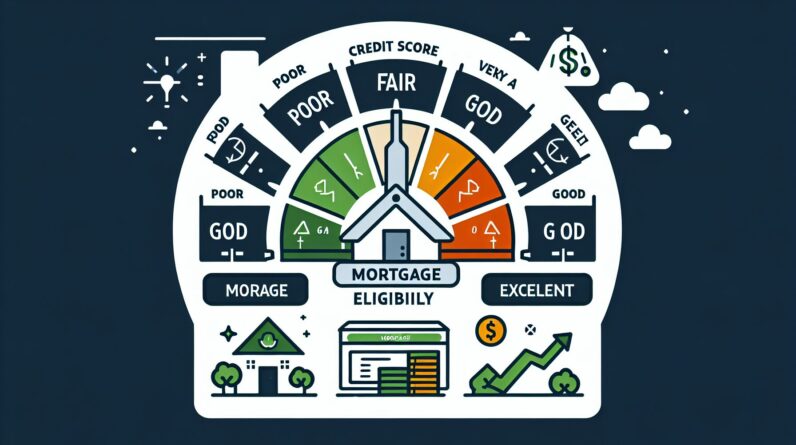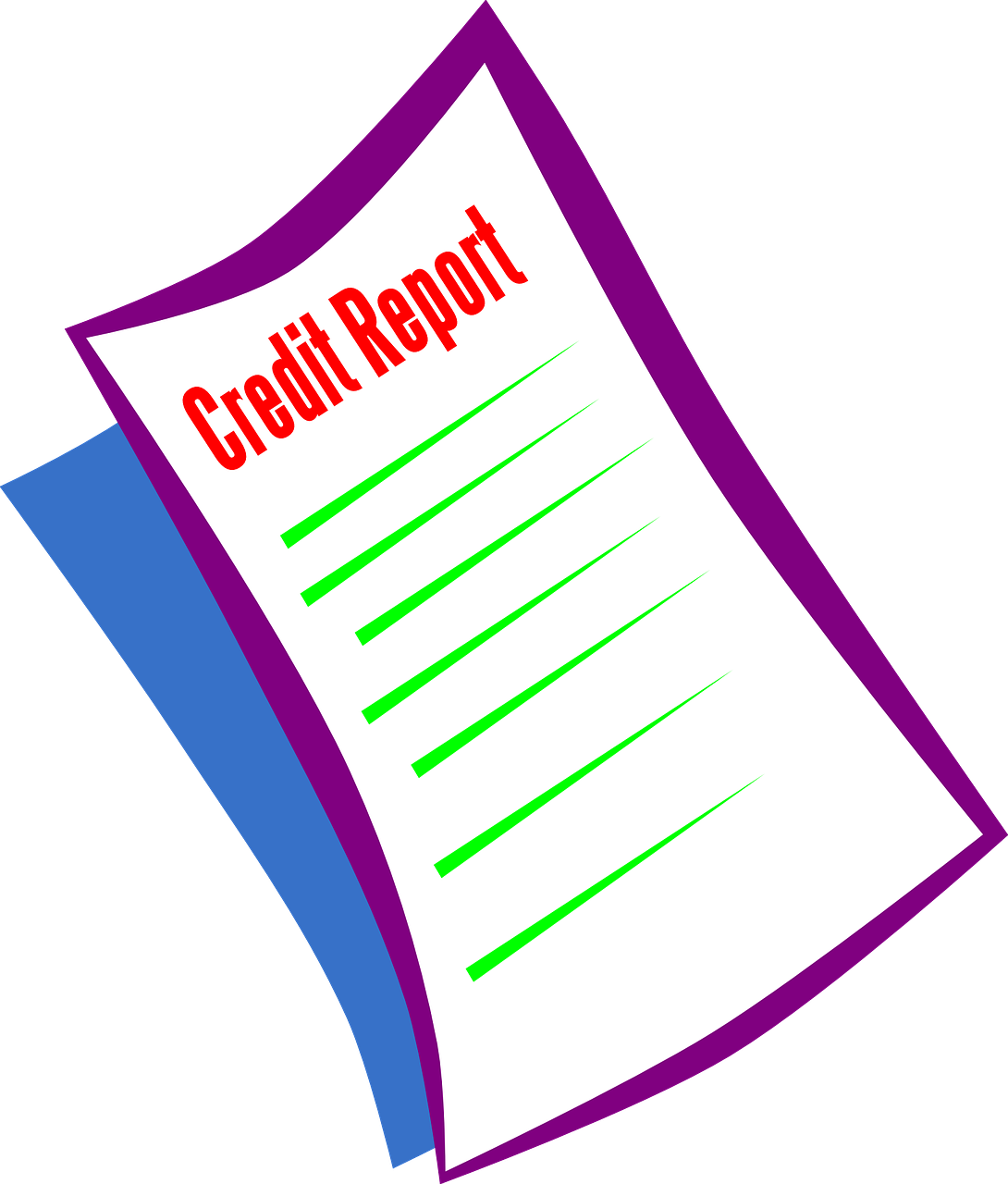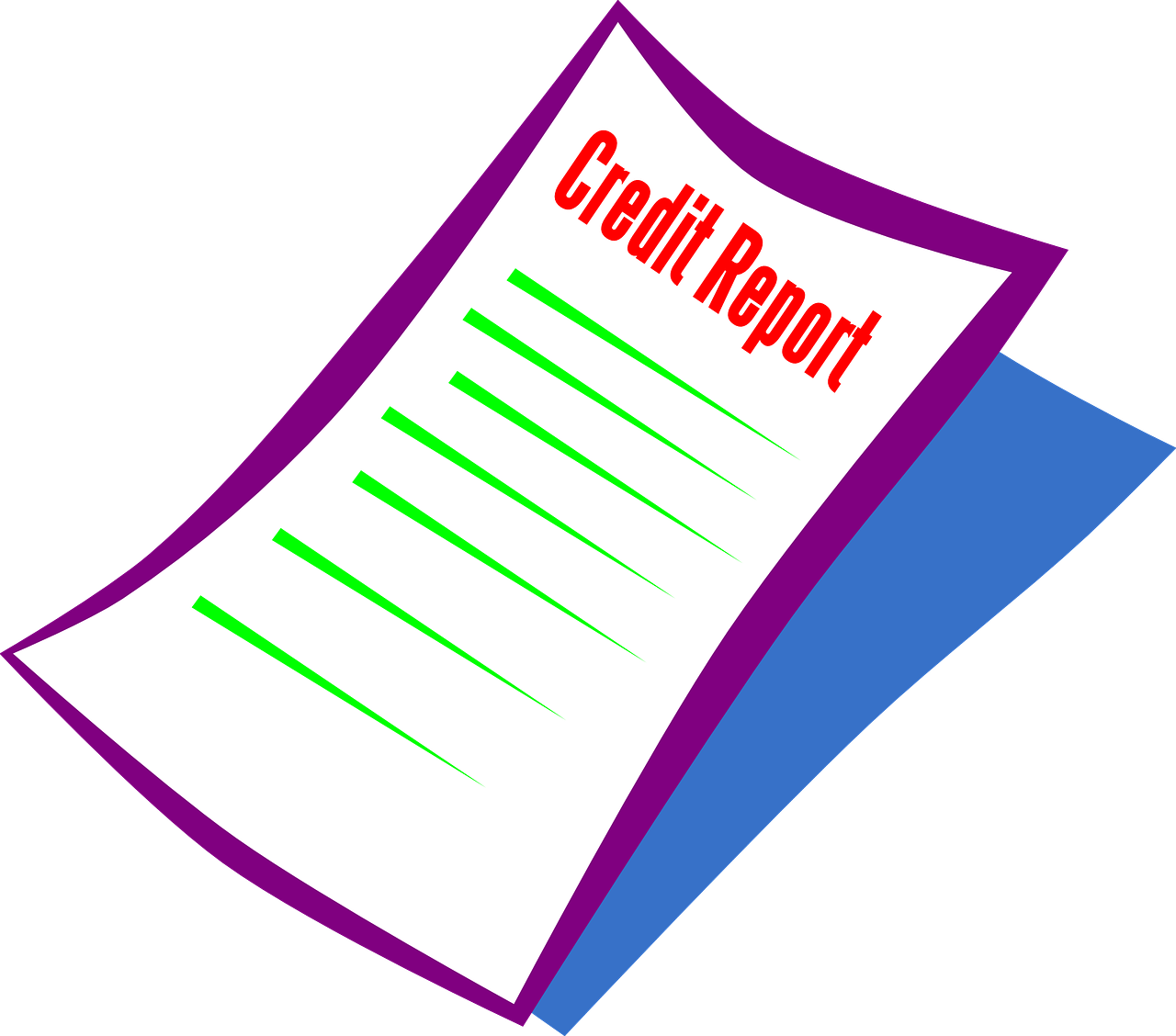
Are you looking to buy a home and wondering what your credit score needs to be in order to secure a mortgage? Well, you’re in the right place! In this article, we will explore the crucial question of what the minimum credit score requirement is for obtaining a mortgage. Understanding this important piece of information will help you navigate the home buying process with confidence and clarity. So, let’s dive right in and find out what credit score you need to make your dreams of homeownership a reality!

Table of Contents
Factors that determine credit score requirements
When it comes to getting a mortgage, there are several factors that determine the credit score requirements. Lenders use these factors to assess your ability to repay the loan and mitigate the risk involved. By understanding these factors, you can better prepare yourself for the mortgage application process and improve your chances of getting approved.
Type of mortgage
Different types of mortgages have varying credit score requirements. Conventional mortgages, which are not insured or guaranteed by the government, often have higher credit score requirements compared to government-backed loans such as FHA, VA, or USDA loans. The specific credit score requirements for each type of mortgage will be discussed later in this article.
Loan-to-value ratio
The loan-to-value ratio (LTV) is an important factor in determining credit score requirements. LTV is calculated by dividing the loan amount by the appraised value of the property. Lenders generally prefer lower LTV ratios, as it signifies less risk for them. A higher credit score can help you qualify for a loan with a higher LTV ratio, meaning you may be able to borrow a larger percentage of the property’s value.
Debt-to-income ratio
Your debt-to-income ratio (DTI) is another crucial factor considered by lenders. DTI is calculated by dividing your monthly debt payments by your gross monthly income. Lenders typically prefer a lower DTI, as it indicates a lower level of debt burden and a higher ability to repay the mortgage. A higher credit score can help compensate for a higher DTI ratio, potentially increasing your chances of mortgage approval.
Interest rate
Your credit score can greatly influence the interest rate you receive on your mortgage. Lenders consider borrowers with higher credit scores to be less risky, which means they may be offered lower interest rates. A lower interest rate can save you thousands of dollars over the course of your mortgage, making it important to have a good credit score to secure the most favorable rates.
Lender’s requirements
Each lender may have their own specific credit score requirements. While there are general industry standards, some lenders may set higher or lower credit score thresholds based on their risk tolerance and lending policies. It’s essential to research different lenders and their credit score requirements to find the one that best suits your financial situation.
Types of mortgages
Before delving into the credit score requirements for different types of mortgages, it’s important to understand the various options available to borrowers. Here are the main types of mortgages commonly offered in the market:
Conventional mortgages
Conventional mortgages are not insured or guaranteed by the government. These loans are typically offered by private lenders such as banks or credit unions. Conventional mortgages usually have stricter credit score requirements compared to government-backed loans, but they can offer more flexibility in terms of loan amount and property type.
FHA loans
FHA loans are insured by the Federal Housing Administration (FHA), a government agency within the U.S. Department of Housing and Urban Development (HUD). These loans are popular among first-time homebuyers and those with lower credit scores. FHA loans often have more lenient credit score requirements and allow for lower down payments compared to conventional mortgages.
VA loans
VA loans are specifically designed for eligible veterans, active-duty military members, and their surviving spouses. These loans are guaranteed by the U.S. Department of Veterans Affairs (VA). VA loans typically have more relaxed credit score requirements and may offer competitive interest rates and flexible financing options.
USDA loans
USDA loans, also known as Rural Development loans, are offered by the U.S. Department of Agriculture’s Rural Development program. These loans aim to promote homeownership in rural areas. USDA loans often have lower credit score requirements and may provide financing options for borrowers with low to moderate incomes.
Credit score requirements for conventional mortgages
Conventional mortgages generally have higher credit score requirements compared to government-backed loans. While each lender may have its own specific criteria, there are some general guidelines to consider:
Minimum credit score for conventional mortgages
Most lenders require a minimum credit score of 620 for conventional mortgages. However, it’s important to note that a higher credit score can increase your chances of approval and may also result in more favorable loan terms.
Impact of credit score on interest rate
A significant advantage of having a higher credit score for a conventional mortgage is the potential for a lower interest rate. Lenders typically offer better interest rates to borrowers with higher credit scores, as they are considered less of a risk. This difference in interest rates can save you a substantial amount of money over the life of your mortgage.
Private mortgage insurance (PMI) requirements
If your down payment is less than 20% of the home’s purchase price, lenders usually require private mortgage insurance (PMI). The cost of PMI is generally influenced by your credit score. Borrowers with lower credit scores may be required to pay higher PMI premiums, while those with higher credit scores may have lower premiums or potentially avoid PMI altogether if their credit score is strong enough.
Credit score requirements for FHA loans
FHA loans are known for their more lenient credit score requirements, making them an attractive option for borrowers with lower credit scores. Here’s what you need to know:
Minimum credit score for FHA loans
The minimum credit score required for an FHA loan is typically around 580. However, some lenders may require a higher credit score, closer to 620 or above. It’s important to shop around and compare different lenders to find the one that offers the most favorable terms based on your credit score.
Benefits of FHA loans for borrowers with lower credit scores
FHA loans provide an opportunity for borrowers with lower credit scores to achieve homeownership. The lower credit score requirements and more lenient underwriting guidelines make FHA loans accessible to a wider range of individuals. Additionally, FHA loans may offer lower down payment requirements, allowing borrowers to purchase a home with a smaller upfront investment.
Upfront and annual mortgage insurance premiums
FHA loans require borrowers to pay both an upfront mortgage insurance premium (UFMIP) and an annual mortgage insurance premium (MIP). These insurance premiums help protect lenders in case the borrower defaults on the loan. The cost of these premiums can vary based on factors such as credit score and loan amount, so it’s important to factor them into your overall homeownership costs.

Credit score requirements for VA loans
VA loans are specifically designed for eligible veterans and offer unique benefits. Here’s what you need to know about credit score requirements for VA loans:
Minimum credit score for VA loans
VA loans typically do not have a specific minimum credit score requirement set by the VA. However, individual lenders may have their own credit score thresholds, with many requiring a minimum credit score of 620 or above. It’s important to work with a lender experienced in VA loans to understand their specific requirements.
Advantages of VA loans for eligible veterans
VA loans offer several advantages for eligible veterans, including more flexible credit score requirements. These loans may also allow for 100% financing, meaning no down payment may be required. VA loans often have competitive interest rates and do not require private mortgage insurance, further reducing the overall cost of homeownership.
Funding fee
VA loans require borrowers to pay a funding fee, which helps offset the cost of the loan for the VA. The funding fee can vary based on factors such as the borrower’s military service category, down payment amount, and whether it is the borrower’s first-time or subsequent use of a VA loan. The funding fee can be financed as part of the loan or paid upfront at closing.
Credit score requirements for USDA loans
USDA loans are designed to help low-income borrowers in rural areas achieve homeownership. If you are considering a USDA loan, here’s what you need to know about credit score requirements:
Minimum credit score for USDA loans
USDA loans typically require a minimum credit score of 640 or above. However, some lenders may consider borrowers with lower credit scores on a case-by-case basis. Factors such as your income, employment history, and overall financial situation may also be taken into consideration when determining eligibility.
Benefits of USDA loans for low-income borrowers
USDA loans provide an opportunity for low-income borrowers to become homeowners. These loans often have more affordable interest rates and flexible credit score requirements compared to conventional mortgages. USDA loans also offer 100% financing, meaning no down payment may be required in certain cases.
Guarantee fee
Similar to FHA loans, USDA loans require borrowers to pay a guarantee fee. This fee helps fund the USDA loan program and can vary based on factors such as loan amount and the borrower’s financial situation. The guarantee fee can be rolled into the loan amount or paid upfront at closing.

Tips to improve your credit score for a mortgage
If your credit score is not currently at the level required for your desired mortgage, there are steps you can take to improve it. Here are some tips to help boost your credit score:
Check your credit report for errors
Review your credit report and carefully check for any errors or inaccuracies. If you find any, dispute them with the credit bureaus to have them corrected. A higher credit score can be achieved by ensuring that your credit report is free of errors.
Pay bills on time
Consistently making timely payments on your credit accounts is crucial for building a positive credit history. Paying your bills on time, including credit card bills, loan installments, and utility payments, can help improve your credit score over time.
Reduce credit card balances
High credit card balances can negatively impact your credit score. Aim to keep your credit card balances below 30% of the available credit limit. Paying down credit card debt can help improve your credit utilization ratio, positively affecting your credit score.
Keep credit accounts open
Closing credit accounts can potentially harm your credit score, especially if they are your oldest accounts. Instead of closing accounts, consider keeping them open and occasionally using them for small purchases to show responsible credit management.
Avoid new credit applications
Opening multiple new credit accounts within a short period of time can negatively impact your credit score. Each new credit application typically results in a hard inquiry on your credit report, which can temporarily lower your score. Avoid unnecessary credit applications while preparing for a mortgage.
Getting a mortgage with a low credit score
While it can be more challenging to secure a mortgage with a low credit score, it is not impossible. Here are some options to consider:
Exploring alternative loan options
If you are unable to meet the credit score requirements for conventional mortgages or government-backed loans, alternative loan options may be available. These loans may come with higher interest rates or require a larger down payment, but they can provide an opportunity to become a homeowner while you work on improving your credit score.
Working with credit repair companies
Credit repair companies specialize in helping individuals improve their credit scores. They can review your credit report, identify areas for improvement, and work with you to address any issues. While it’s important to choose a reputable credit repair company, their expertise can potentially help you raise your credit score over time.
Saving for a larger down payment
A larger down payment can compensate for a lower credit score and increase your chances of mortgage approval. Saving for a larger down payment demonstrates financial responsibility and reduces the loan-to-value ratio, making you a less risky borrower to lenders.

Effect of a low credit score on mortgage approval
Having a low credit score can impact your ability to get approved for a mortgage in several ways:
Stricter requirements
Lenders may impose stricter requirements, such as higher credit score thresholds, for borrowers with lower credit scores. This can make it more challenging to qualify for a mortgage or result in higher interest rates and other unfavorable terms.
Higher interest rates
With a low credit score, you may be offered higher interest rates to offset the perceived risk to lenders. These higher rates can significantly increase the overall cost of your mortgage over time, making it important to improve your credit score to secure more favorable rates.
Difficulty in obtaining government-backed loans
Government-backed loans, such as FHA, VA, or USDA loans, are often more accessible to borrowers with lower credit scores. However, even with these loan options, there are minimum credit score requirements that must be met. If your credit score falls significantly below these requirements, it may be difficult to qualify for these loans.
Limited mortgage options
A low credit score can limit your mortgage options and potentially restrict you to higher-risk loan programs or subprime lenders. These options tend to have higher interest rates, stricter terms, and may not offer the same level of consumer protection as traditional mortgage options.
Importance of credit history and financial responsibility
Building and maintaining a good credit score is essential for financial health and can have a long-term impact on your personal finances. Beyond securing a mortgage, a good credit score can help you qualify for lower interest rates on other loans, open doors to better credit cards, and even impact employment opportunities.
Building and maintaining good credit
To build and maintain good credit, it’s important to consistently practice financial responsibility. This includes paying bills on time, managing credit card balances, and avoiding excessive debt. By demonstrating responsible credit behavior over time, you can improve your credit score and have more favorable options when it comes to securing a mortgage.
Other factors considered by lenders
While credit score is an important factor, lenders also consider other aspects of your financial profile when assessing your mortgage application. These may include your income, employment history, debt-to-income ratio, and the overall financial stability. A strong credit score, combined with positive factors in these areas, can increase your chances of mortgage approval.
Long-term impact of credit score on finances
Your credit score has lasting implications on your financial well-being. With a higher credit score, you may qualify for lower interest rates and better loan terms, saving you money throughout the life of your mortgage. On the other hand, a low credit score can result in higher costs and limited financial opportunities. It’s worth investing time and effort into building and maintaining good credit for the long-term benefits it can provide.








